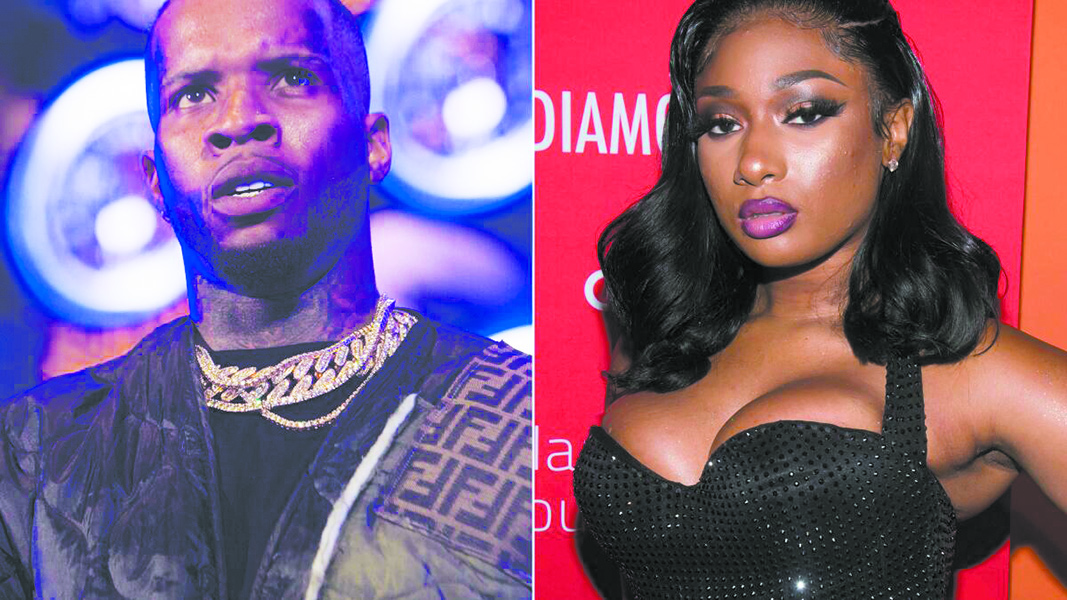Civil
Part Two: Domestic Violence Awareness Highlights Technology Abuse
“Addressing tech-assisted violence against women.” #DomesticViolence #TechAbuse #MisogynyOnTwitter #BlackWomenSafety #Cyberbullying #OnlineSafety

By Rosaland Tyler
Associate Editor
New Journal and Guide
If there is a thin line between love and hate, as The Persuaders said in their 1971 hit, then the line that distinguishes domestic violence from tech-assisted violence is nearly invisible.
The two are similar, due to the fact that abusers use aggressive and violent language behind closed doors and in public on social media.
According to a 2014 report, Misogyny on Twitter, released by the research and policy organization Demos, more than 6 million instances of the word “slut” or “whore” were used in English on Twitter between Dec. 26, 2013, and Feb. 9, 2014. “(The words “bitch” and “cunt” were not measured.) An estimated 20 percent of the misogyny study Tweets appeared, to researchers, to be threatening. An example: “@XXX @XXX You stupid ugly f**king slut I’ll go to your flat and cut your f**king head off you inbred whore.”
Black females experience domestic violence at a 35 percent higher rate than White females, and about 22 times the rate of women of other races, according to the American Bar Association’s Commission on Domestic Violence, More than half of all Black female adult murder victims are killed by an intimate partner.
This is the point. It is not shocking that Black females are more likely to experience technology-facilitated abuse. In fact, Black women are 84 percent more likely to be abused on social media than White women, according to a 2018 Amnesty International study.
Black women must find ways “to stay safe in the club, on public transport and now online,” said Seyi Akiwowo, 31, author of the 2022 book, How To Stay Safe Online.
She said she wrote it after she received a flood of abuse when a video of her speech at the European Parliament went viral in 2017.
“I basically see this book as a helpful guide for anyone looking to support themselves online or support somebody else,” Akiwowo said. Her book focuses on Black women “because that’s the perspective I write from and I focus on because we are under-researched and we are under-resourced,” she said. Black, visible women need to be resilient and unbothered. Do not be afraid to “block, mute and filter,” she advised.
Danielle Keats Citron, law professor at the University of Maryland and author of the recently released book Hate Crimes in Cyberspace, also told The Atlantic, “Time and time again, these women have no idea often who it is attacking them. A cybermob jumps on board, and one can imagine that the only thing the attackers know about the victim is that she’s female.” Looking at 1,606 cases of “revenge porn,” where explicit photographs are distributed without consent, Citron found that 90 percent of targets were women. Another study she cited found that 70 percent of female gamers chose to play as male characters rather than contend with sexual harassment.
The problem is cyberviolence/cyberbullying has led some young females to commit suicide. Nearly half of U.S. teens, or 46 percent, have been bullied or harassed online at some point, according to a 2022 report by the Pew Research Center. A report published in the Journal of the American Medical Association last year found that young people who experienced cyberbullying were more than four times as likely to report suicidal thoughts and attempts as those who did not.
Whether an abuser uses a fist, gun, keyboard or a smartphone, the goal in either a domestic-violence or a technology-facilitated abuse situation is to silence and control the female. Abusers typically use sexual slurs or outright threats during domestic or tech abuse beatdowns.
Still, to understand the strides that have been made reflect on what happened after Megan Thee Stallion said Tory Lanez, a rapper and intimate partner pulled out a gun as they argued while leaving a Hollywood Hills party. He shot her in the foot. Then, Lanez shouted, “Dance bitch, dance!” while firing gunshots at the ground. He shot five rounds at her on July 12, 2020 shortly before 4:30 a.m. Lanez was arrested and arraigned on felony charges of assault with a semiautomatic firearm and carrying a loaded, unregistered firearm in a vehicle.
When Lanez went to trial in December 2022, Los Angeles Police Department Detective Ryan Stogner testified that no one other than Megan Thee Stallion heard the alleged remark, “Dance, bitch.”
“Even as a victim, I have been met with skepticism and judgment,” she wrote later in an op-ed published in The New York Times. “The way people have publicly questioned and debated whether I played a role in my own violent assault proves that my fears about discussing what happened were, unfortunately, warranted.”
Currently, Lanez, 31, is serving a 10-year sentence for the shooting at North Kern State Prison in Delano, Calif.














